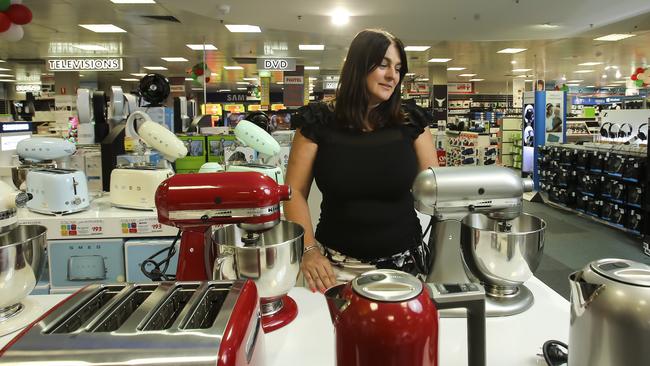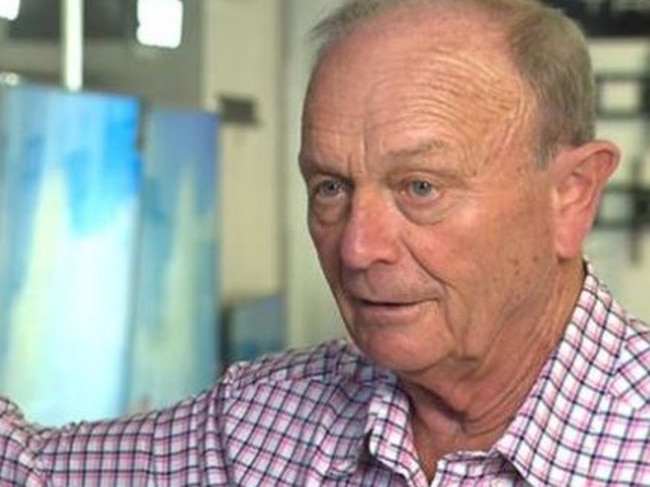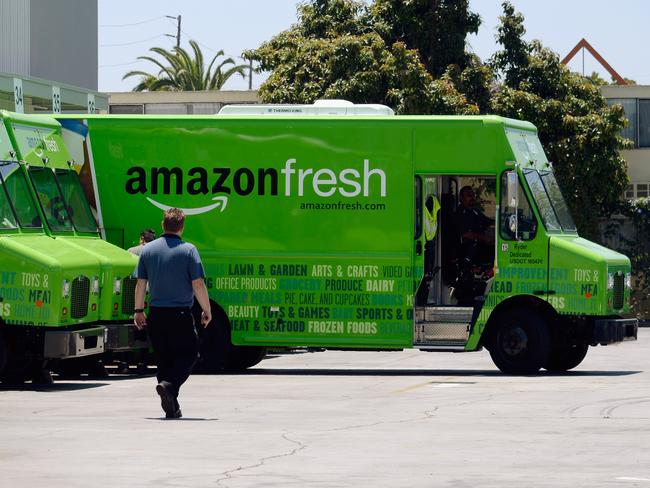Gerry Harvey says Amazon will face a tougher battle in Australia
GERRY Harvey thinks he’s found Amazon’s weak spot, and warns the e-commerce giant that Australian retailers are ready.

GERRY Harvey thinks he’s found Amazon’s weak spot, and warns the e-commerce giant that Australian retailers are ready to do battle.
The Harvey Norman founder has vowed to “match or beat” the e-commerce giant’s cutthroat prices, a pledge that comes as Amazon gets ready to launch its local operations.
Last week’s confirmation of the retailer’s widely anticipated move Down Under could herald a new era of discounting in what could shape up to be the ultimate price war, with its usual practice being to slash prices by 30 per cent across the board.
But Mr Harvey said if Amazon expected Australian businesses to let it steal all their customers, it would be in for a shock.
“Amazon in Australia — it’s not going to be as easy as the US,” he said.
“Most of the retailers there rolled over but they won’t here. They’ve got big warehouses and are heavily unionised.”
He said business practices in the US were different as the laws were “more lax”.
“You can get away with a lot of things in America that you can’t get away with here,” Mr Harvey said.
And he was confident that he would be able to follow through with his price matching pledge, talking down the impact on Harvey Norman’s bottom line.
“Amazon don’t sell an awful lot of the products we’re in,” Mr Harvey told news.com.au. “They’ll compete with us on some things, maybe 15 to 20 per cent of our floorspace.”

The outspoken entrepreneur wants to emulate the US electronics chain Best Buy, which last year had a marked turnaround despite competition from Amazon.
Its company results were so impressive that Bloomberg described them as “Amazon-like”, after bucking the industry trend by raising comparable sales.
“They’re really competing with Amazon in a big way,” Mr Harvey said.
Best Buy’s improved results were credited in part to the popularity of hot new gadgets like virtual-reality headsets and smart watches.
The retailer also slashed costs so it could better compete on price, revamped its website, streamlined its online checkout process and cut delivery times — fast, reliable shipping being one of Amazon’s greatest strengths.
‘THEY’RE SO FAR OFF’
Mr Harvey said Amazon’s plans had been “overhyped” and questioned the viability of its planned September launch.
“It will take them two to three years to set up here; to my knowledge they haven’t even got a block of land,” he said.

Amazon has officially confirmed that is already has more than 1000 Australian employees, after its hiring spree earlier this year.
Its expanding workforce is housed over a number of floors at No. 2 Park St, a prominent 47-storey office tower in Sydney.
Insiders have spoken of Amazon’s plans to set up distribution centres in every state by next year, allowing it to ship general merchandise and fresh produce at lightening speed.
But Mr Harvey dismissed reports that the retailer would be rolling out its full offering — including the popular grocery delivery service Amazon Fresh — straight away.
“They’re so far away from it,” he said.
‘PREDATORY PRICING’
Mr Harvey disputed Amazon’s ability to slash prices of electronics and whitegoods by 30 per cent, saying it would be impossible to do so without breaching Australia’s competition and consumer laws.
“You can probably do it with a dress that has a 300 per cent mark-up, but when you’ve got a fridge that’s only marked up 15 per cent, how can you cut that?” he asked. “By selling at below cost.”
He argued that this would constitute predatory pricing, an illegal misuse of market power that could make Amazon a target for regulatory action.
It’s when a company with substantial market power sets is prices at such a low level that competitors are forced to withdraw from he market, with prices set not to attract customers but to eliminate the competition.
According to the ACCC, predatory pricing can be difficult to prove because “the initial signs of predatory pricing can appear pro-competitive”, and establishing an anti-competitive purpose can be tricky.
For example, Coles’ discounting of home brand milk was found by the regulator not to be predatory pricing in 2011, when the ACCC said it was simply designed to increase the retailer’s market share by taking sales from its competitors — as would be expected “in a competitive market”.
‘AN ANIMAL LET OUT OF ITS CAGE’
Mr Harvey argued that the Australian Government should pre-empt such difficulties by simply banning Amazon from the country.
He said Amazon, which made headlines last year when it promised to “destroy the retail environment in Australia”, aimed to secure its market dominance before hiking fees for manufacturers to sell on its platform.
The retailer’s lobbying might was demonstrated in its campaign against GST reform, Mr Harvey said.
Representatives of Amazon, Etsy, eBay and Alibaba appeared at a Senate economics committee to campaign last week, where the committee heard that major global retailers may use geoblocking to shut out Australian shoppers if laws imposing GST on goods bought online from overseas went through.
“This is a rampaging animal that’s been let out of its cage and allowed to send other people to the wall, so one day when Amazon is the last one standing it can make all the rules,” he said.
“They pay virtually no tax, make no profits. Most retailers and manufacturers hate them — they won’t say it publicly, but they’ll tell you over a cup of tea what they really think.”
Amazon declined a request for comment.




